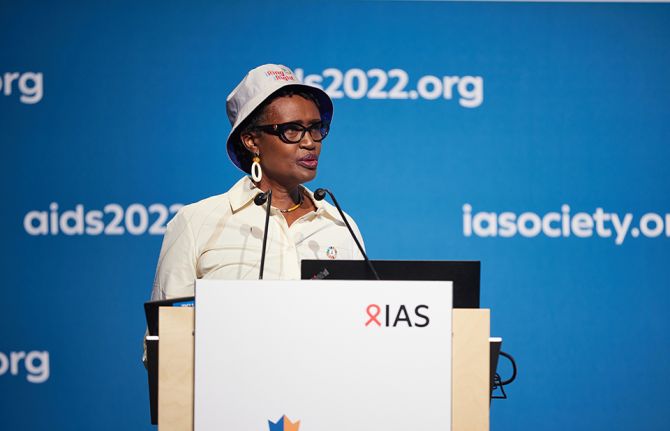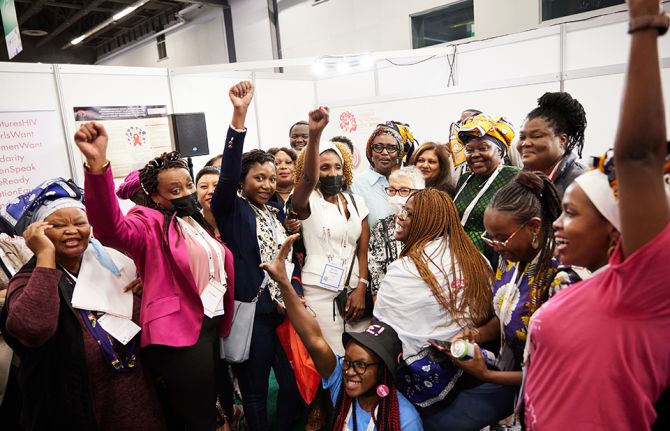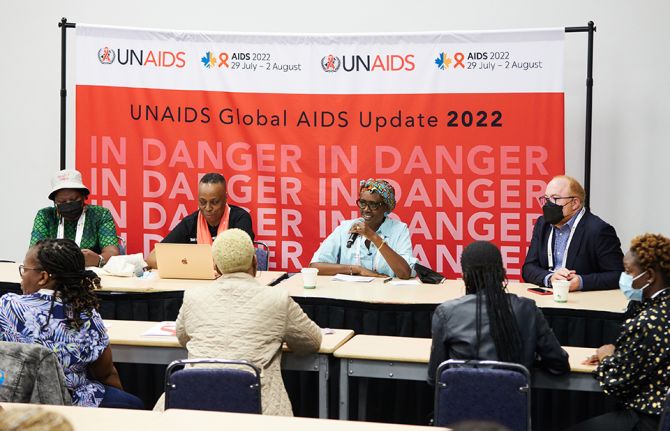



Press Release
As AIDS2022 closes, UNAIDS urges world leaders to act with courage to end AIDS
02 August 2022 02 August 2022As AIDS2022 in Montreal comes to a close, UNAIDS Executive Director Winnie Byanyima said:
"Thanks to the dedication of thousands of scientists around the world, the determined organizing of civil society groups, and the support of key policy makers, the issues lifted up at AIDS2022 could enable a turning point in the global AIDS response. The new UNAIDS report released at the conference, In Danger, shows how the AIDS response has been blown off course, making action urgent.
The research presented at this conference provides new data, important scientific progress, and further evidence on the biomedical, social, and policy interventions needed to stop the AIDS pandemic. The insights and data shared by community organizations showed concretely how we can stop AIDS from snatching a life every minute and ways to tackle the inequalities driving the AIDS pandemic.
We are deeply saddened by how many researchers, officials, and people living with HIV from Africa, Asia, and Latin America were unable to come to the conference in Canada because they were unable to secure a visa. The host country of the next global AIDS conference, two years from now, must be one that guarantees that this will not be repeated and that those most affected by HIV can be fully at this important table.
Important steps forward were taken in Montreal.
This was a breakthrough conference for new long-acting ARVs to stop HIV. New research showed that injectable PrEP is among the most effective tools for preventing HIV available and that it works well in multiple populations. The World Health Organization released new guidelines and drugmaker ViiV has announced licenses for generic manufacturing of the drug in 90 countries. This could be a game changer if ViiV can provide an affordable price for low- and middle-income countries now, in the tens of dollars not hundreds of dollars, since it will be several years before generic production comes online and if generics are made available beyond these original 90 countries.
The commitments made by African leaders and by international partners who have come together in the new global alliance to end AIDS in children could, if followed through, ensure that every child living with HIV is on antiretroviral medicine, and that no more children are infected with HIV.
We thank the ministers and other political leaders who took part in the Conference, appreciate PEPFAR and Global Fund for the commitment demonstrated here, and call upon the many leaders who did not attend to take seriously the findings of this conference.
In particular, we call upon governments to urgently increase funding for the Global Fund and for the UN Joint Programme to enable the findings of this conference to turn into reality on the ground. As UNAIDS new report, In Danger, highlighted, courageous political leadership is essential to end AIDS and save millions of lives.”
UNAIDS
The Joint United Nations Programme on HIV/AIDS (UNAIDS) leads and inspires the world to achieve its shared vision of zero new HIV infections, zero discrimination and zero AIDS-related deaths. UNAIDS unites the efforts of 11 UN organizations—UNHCR, UNICEF, WFP, UNDP, UNFPA, UNODC, UN Women, ILO, UNESCO, WHO and the World Bank—and works closely with global and national partners towards ending the AIDS epidemic by 2030 as part of the Sustainable Development Goals. Learn more at unaids.org and connect with us on Facebook, Twitter, Instagram and YouTube.
